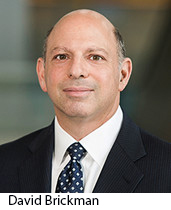
Freddie Mac: Continued Multifamily Market Growth But Increased Affordability Challenges
Most multifamily executives believe the rental housing market will continue to grow, but many are less optimistic about the affordable housing outlook, reported Freddie Mac, McLean, Va.
Freddie Mac and real estate media firm Hanley Wood surveyed 200 people involved in property development, building and construction, lending, financing and investing and property management. They found 60 percent of industry participants anticipate the multifamily housing market will grow over the next three to five years. Only 15 percent see it slowing down. Of those who said they believe the industry will grow, nearly one-third cited supply and demand as the justification for this continued growth; another 17 percent cited population growth.
 Freddie Mac Multifamily Executive Vice President David Brickman said the survey found general consensus about multifamily market strength. “Confidence in market fundamentals remains high among industry participants, largely due to strong demand fueled by lifestyle preferences and demographic changes,” he said.
Freddie Mac Multifamily Executive Vice President David Brickman said the survey found general consensus about multifamily market strength. “Confidence in market fundamentals remains high among industry participants, largely due to strong demand fueled by lifestyle preferences and demographic changes,” he said.
But Brickman noted many survey participants said that same demand is making the affordability crisis worse for many families. “It underscores the need for increased investment in the acquisition and preservation of affordable rental housing,” he said.
The Mortgage Bankers Association sent a letter to the Federal Housing Finance Agency this week that said the affordable housing goals for Freddie Mac and Fannie Mae should ensure sustainable housing for low- and very low-income households.
The MBA letter noted the Housing and Economic Recovery Act of 2008 established a duty for Freddie Mac and Fannie Mae to serve the affordable housing preservation market by increasing the liquidity of mortgage investments and improving the distribution of investment capital available for mortgage financing for very low-, low- and moderate-income families in those markets.
In its white paper on reforming Fannie Mae, Freddie Mac and the secondary mortgage market, GSE Reform: Creating a Sustainable, More Vibrant, Secondary Mortgage Market, MBA called the GSEs’ affordable housing obligations a “critical element” of creating stability.
Just over 40 percent of respondents expressed “declining optimism” about the outlook for affordable rental housing today compared to one year ago, Freddie Mac found. When asked about the challenges to offering affordable housing, 40 percent cited costs–especially land and construction–as the greatest hurdle. But when asked how they respond to affordable housing challenges, most respondents could not cite specific actions they have taken to address the issue.
The survey also asked industry participants about the areas that should be a focus for multifamily housing. The majority–51 percent–said they believe enhancing multifamily property energy efficiency is extremely or very important. Increasing the supply of affordable housing ranked second at 48 percent. Addressing the housing needs of seniors and increasing workforce housing supply tied for third with 47 percent as extremely/very important areas of focus.
“Industry participants understand the importance of improving the energy efficiency of properties, growing the affordable and workforce housing stock and meeting the needs of seniors–all of which will help us address our nation’s affordability crisis,” Brickman said.
